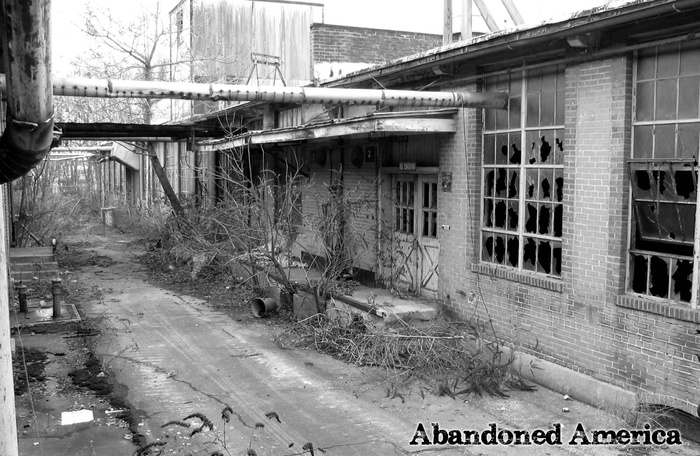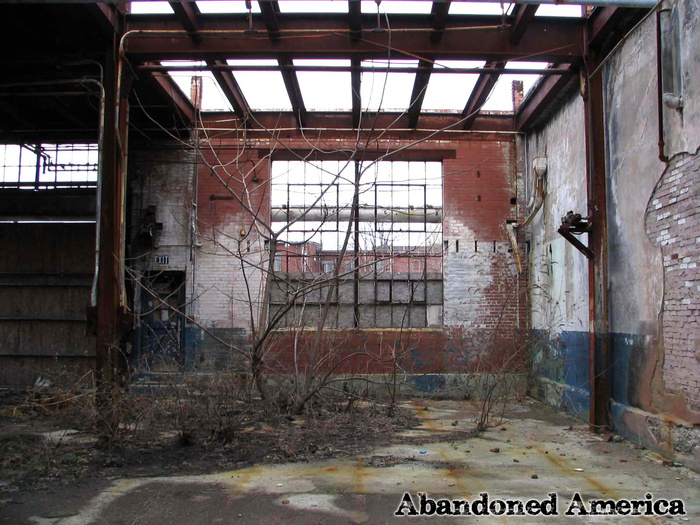Raymark Industries

Updated April 2006 | By Matthew Christopher
This division of Raybestos-Manhatten Inc. was responsible for the manufacturing of specialized friction products, including rope and cloth insulation products, automotive brake linings, and clutch facings. When the plant went out of business in the 1990's it left a staggering legacy of pollution. On-site dumping of asbestos and lead had contaminated the groundwater. Shortly before the compound was razed I managed to get access to the enormous complex and its fascinating art deco laboratory buildings. In 2007, a park was built on the site in memory of the hundreds of nearby residents and workers who lost their lives to asbestos exposure.

When I called the county to request permission to photograph the sprawling Raybestos/Raymark plant, the official I spoke with was very agreeable. He did say that he did not feel I would be able to photograph interiors, because of the high concentration of asbestos still onsite. However, when the county representative met me and we began walking around, she asked if I would like to photograph the interiors. Thinking that perhaps they had changed their minds, I honestly answered, 'of course!'
What followed was a pretty amazing day. The site covered acres and had a great many buildings. they were filthy/decayed and very toxic, but largely untouched by scrapping and vandalism and full of old machinery. The county representative I met with seemed to be enjoying her trip through the plant also and had a very adventurous spirit. We went through an amazing art deco laboratory covered with ornate patterns of mold, the factory floors, and offices, some filled with old wooden equipment whose uses I could only guess at.
Shortly after we finished the original official contacted me and was very angry that I had gone in the buildings. I felt moderately bad because I hadn't been trying to hoodwink him or the representative who met me (I had no idea who had superiority over the other or what conversations had gone on between them before I met her). I did not regret the fact that I entered the buildings one bit though - even though I can't imagine that photographing an asbestos plant will benefit my health one bit in the long term.
Join us on Patreon for high quality photos, exclusive content, and book previews
Read the Abandoned America book series: Buy it on Amazon or get signed copies here
Subscribe to our mailing list for news and updates